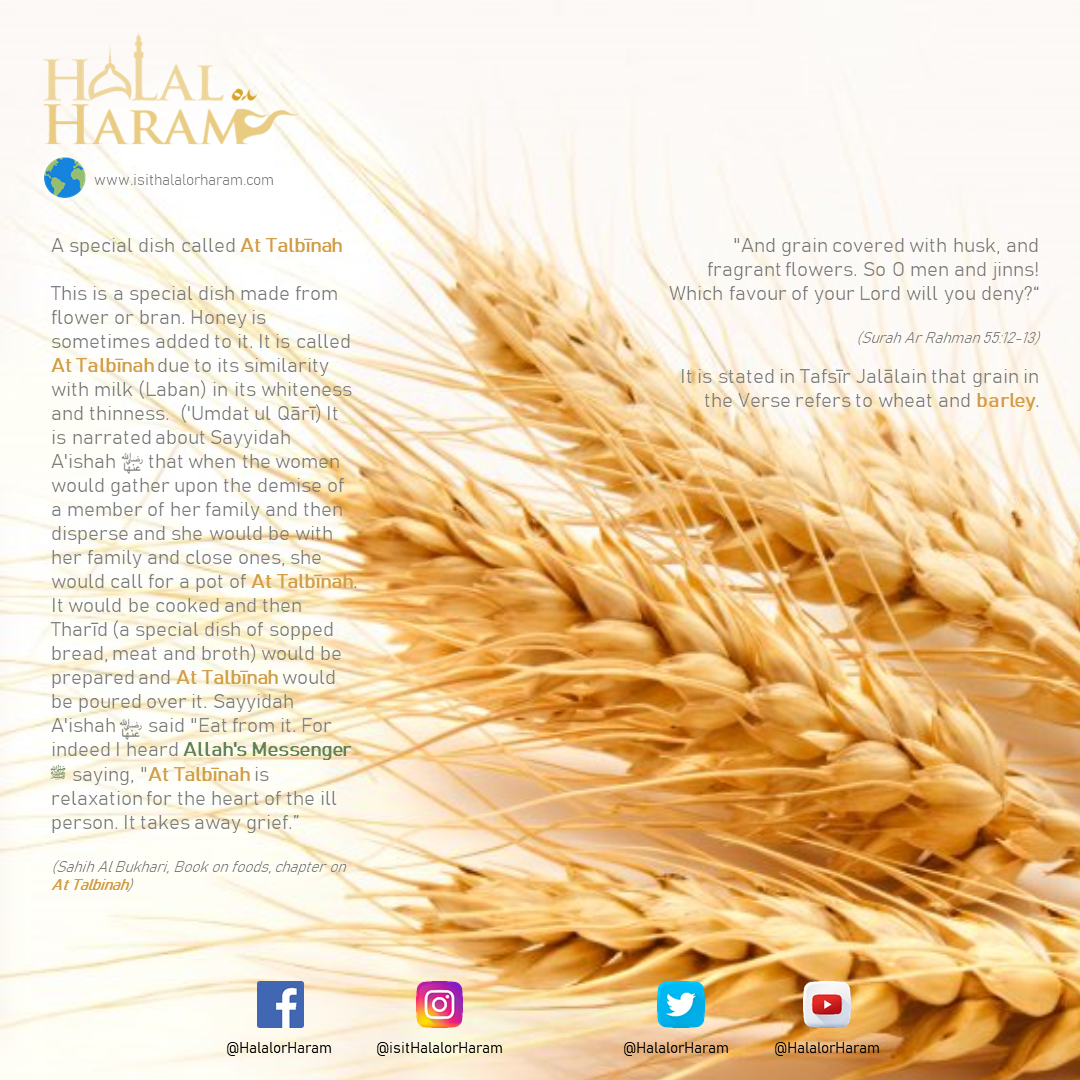This verse refers to Talbīnah ; “And grain covered with husk, and fragrant flowers. So O men and jinns! Which favour of your Lord will you deny?“
(Surah Ar Rahman 55:12-13)
It is stated in Tafsīr Jalālain that grain in the Verse refers to wheat and barley.
Please do subscribe to our Channel on Youtube.
‘Ā’ishah (raḍiy Allāhu ‘anhā) used to recommend talbīnah for the sick and for the bereaved. She used to say: “I heard the Messenger of Allah ﷺ saying: ‘Talbīnah brings comfort to a sick person’s heart, and relieves some of their sorrow and grief.’” (Bukhārī)
The Messenger of Allah ﷺ said: “No man fills a container worse than his stomach. A few morsels that keep his back upright are sufficient for him. If he has to, then he should keep one third for food, one third for drink and one third for his breathing.” (Tirmidhī)
ِAllah reminds us: “O mankind, eat from whatever is on earth [that is] lawful (ḥalāl) and wholesome (ṭayyib) and do not follow the footsteps of Shayṭān. Indeed, he is to you a clear enemy. (2:168)
Barley is high in fiber, especially beta-glucan, which may reduce cholesterol and blood sugar levels. It may also aid weight loss and improve digestion. Whole-grain, hulled barley is more nutritious than refined, pearled barley. It can be substituted for any whole grain and easily added to your diet.
Wheat is ground without the outer bran layer that contains most of the fibre, while barley is consumed as a whole grain or in pearled form. Both grains contain a similar amount of gluten, thus making them unsuitable for people with gluten allergies or celiac disease. Black or brown rice, quinoa, amaranth, millet etc
![]()

